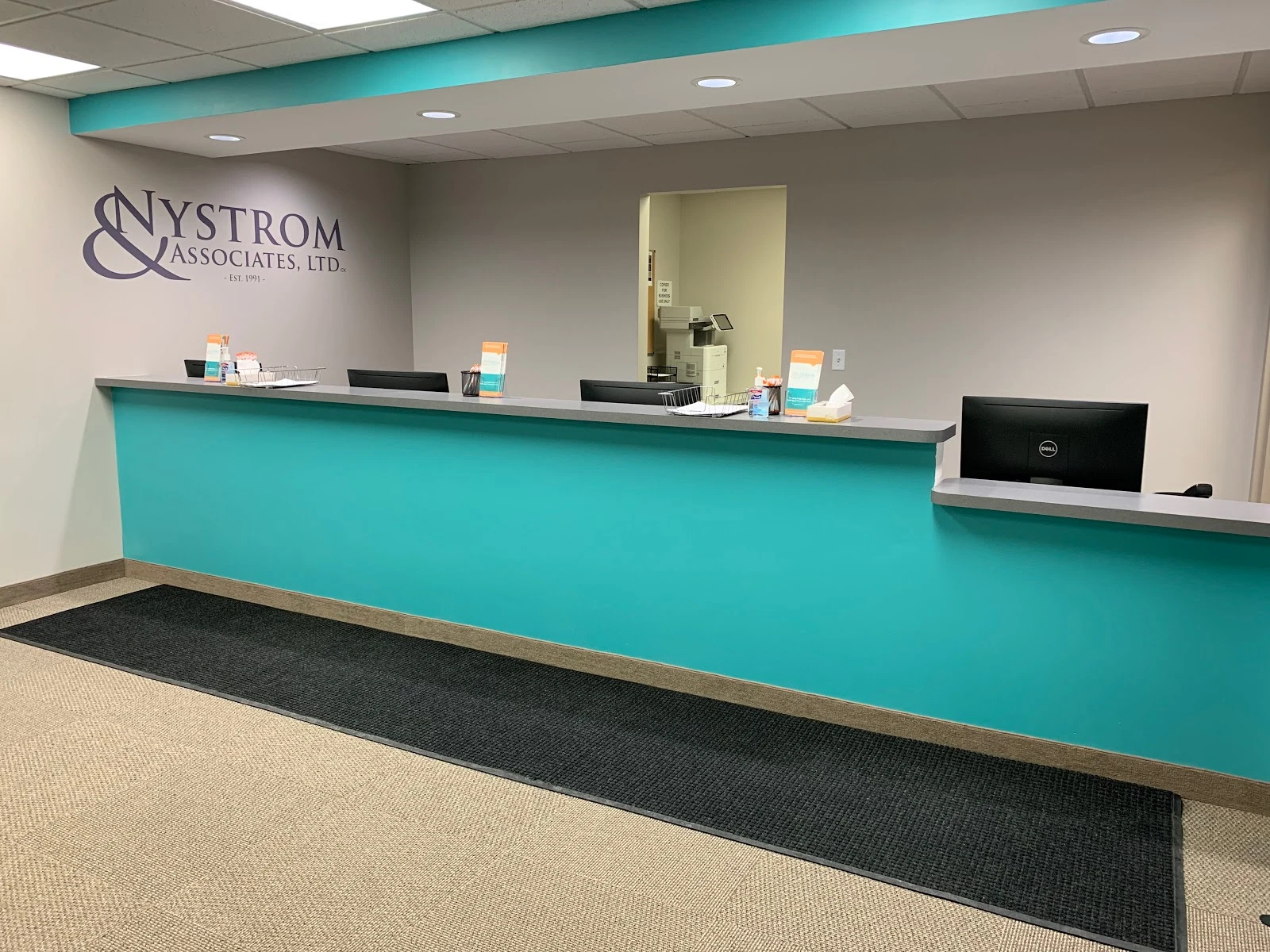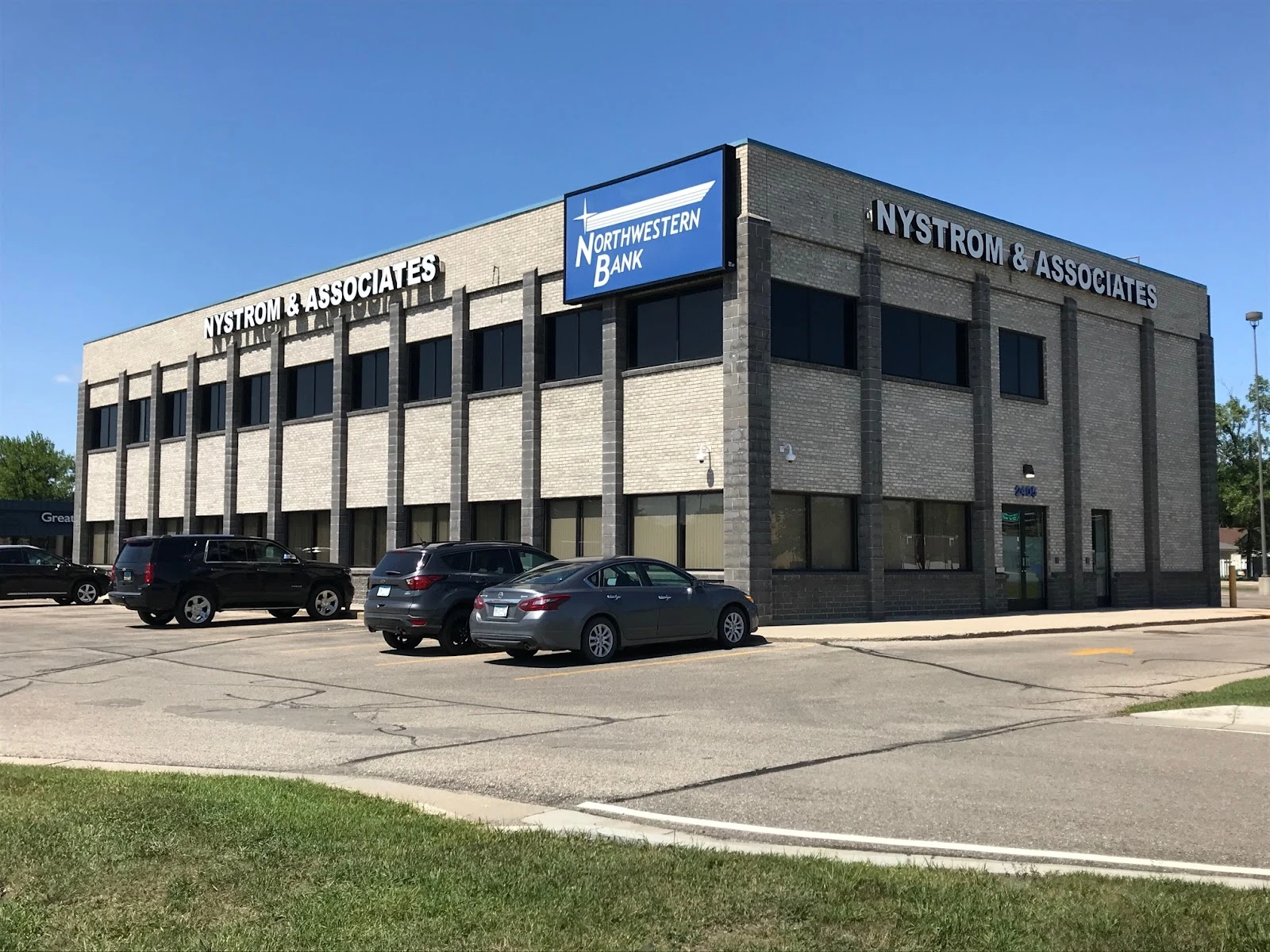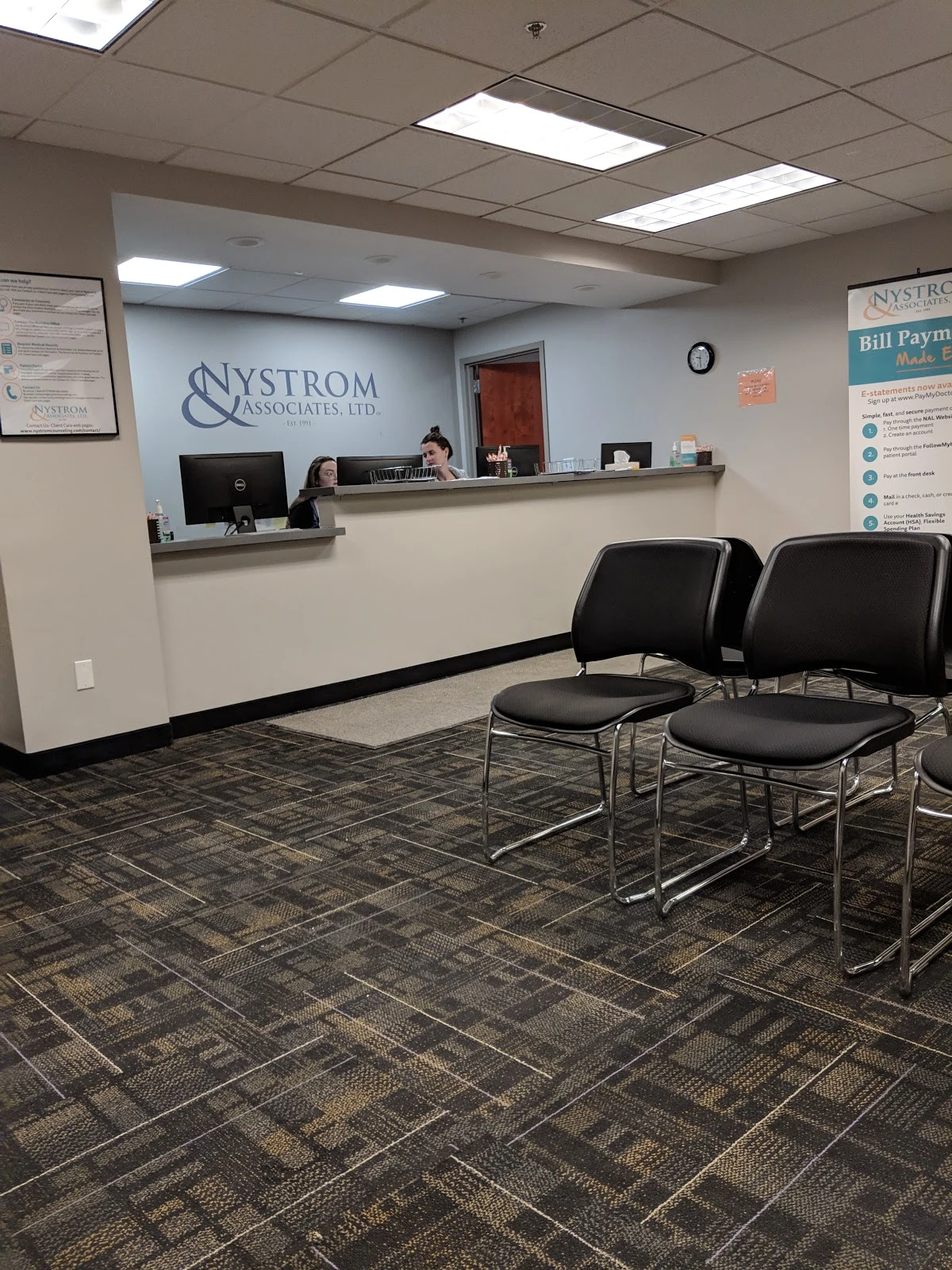Nystrom and Associates - Moorhead Clinic Information
Treatment
Who We Treat
- Children
- Teens / Adolescents
- Adolescents
- Male and Female
- LGBTQ+
- Couples
- Veterans
Treatment Focus
- Anxiety
- Depression
- Drug Addiction
- Couples Counseling
Approaches
- 12-Step-Based
- Personalized Treatment
- Evidence-Based
- Twelve Step
- Family Therapy
- Group Therapy
- Cognitive Behavioral Therapy (CBT)
- Dialectical Behavior Therapy (DBT)
- 1-on-1 Counseling
- Nutrition Counseling
- Life Skills Training
Conditions We Treat
- Depression
- Anxiety
- Bipolar Disorder
- Post Traumatic Stress Disorder (PTSD)
- Trauma
- Suicidal Thoughts
- Suicidality
- Stress
- Bipolar
- Neurodiversity
- Eating Disorders
- Co-Occurring Disorders
Languages
- English
Aftercare
- Discharge Planning
- Medication Assistance
- Continuing Care
Level of Care
- Outpatient
- Virtual & In-Home Care
- Aftercare/Continuing Care
Experience
On-Site Amenities
- Air-Conditioned Rooms
Special Considerations
- Wheelchair Accessible
- LGBTQ group
- Couples program
Smoking and Vaping Policy
- Smoking Allowed in Designated Areas
- Vaping Allowed in Designated Areas
Accreditations
-
SAMHSA certification for opioid treatment program (OTP)
SAMHSA's Opioid Treatment Programs (OTP) Accreditation is a rigorous recognition process, signaling an OTP's commitment to high-quality care for those with opioid use disorders. It assures patients, families, and the community that the program adheres to evidence-based practices, maintains a safe environment, and employs qualified staff. This accreditation represents a commitment to addressing the opioid epidemic and promoting recovery, symbolizing quality and accountability in opioid addiction treatment.
-
State department of health
Government agencies issue State Licenses, granting rehabilitation organizations permission to operate their businesses legally within specific geographic regions. The licenses needed for legal operation are typically determined by the type of rehabilitation program offered by a facility and its physical location.

Additional Locations
Nystrom and Associates - Moorhead Clinic Accepts The Following Insurance Plans
Find the best treatment options. Call our free and confidential helpline today!







